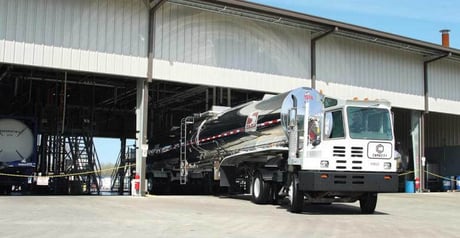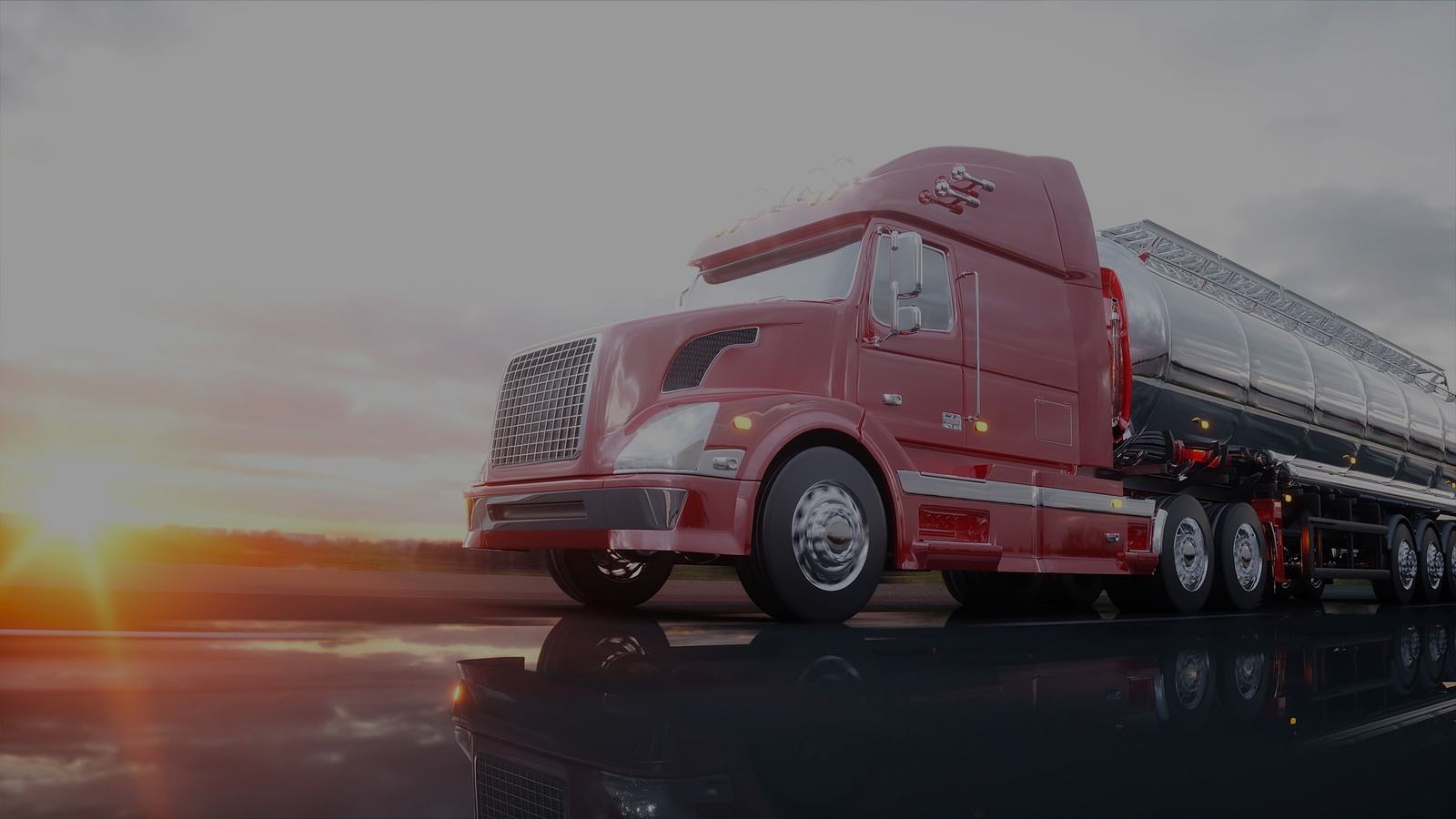Of the many elements that make dry and liquid bulk transportation a whole different animal from regular old dry-van transport, perhaps none creates more of a headache for both shippers and carriers than the truck tank wash. It is a necessary evil that prevents cross-contamination between loads, but it is also responsible for the addition of extra time and cost to most bulk shipments. In this article, we’ll examine tank washes in greater detail and identify ways to make them less of a headache.
What is a tank wash?

Whether it’s a liquid or dry bulk shipment, food grade or chemical, the tank or trailer and equipment used to transport the product must be thoroughly washed and dried before it can be used again to haul another product. This happens at a tank wash facility (or “wash rack”). For many products, a simple detergent wash with pressurized water and steam or a caustic wash will do the job. For tougher products that cling to the sides of the tank and/or get lodged in crevices or valves, a more extensive wash may be required in which someone gets inside of tank and does the job by hand.
For certain dry bulk shipments, a conversion wash may be necessary. With this type of wash, the pipe running along the bottom of the trailer is removed, along with all fittings, and the trailer is cleaned to ensure that no stray particles are hiding anywhere.
The average wash takes two hours or more, with conversion washes taking closer to three hours.
Specialized tank washes like a food-grade tank wash or a kosher tank wash may also be necessary.
- Food-grade tank wash: In order for a wash rack to perform food-grade washes, it must follow all related FDA Food Safety Modernization Act (FSMA) requirements, and dedicate a wash bay and equipment solely to food-grade washes. There are more stringent standards for edible food products than there are for food-grade items not meant for consumption.
- Kosher tank wash: According to leading tank wash provider Quala, “In order to qualify for kosher certification, the facility must meet (Kosher) standards for a truck wash, which includes verification that wash water is not recycled or recirculated.” Depending on product or shipper requirements, Kosher washes may need to be supervised by a rabbi. Kosher certification for tank wash facilities is performed by organizations such as the Chicago Rabbinical Council (cRc) and Industrial Kosher.
Why can it be such a headache?
The primary reason that tank washes can be a headache is that they add a lot of time to a project. With a dry van load, a driver can unload at the delivery point, get loaded at a nearby location, and be on his or way without many deadhead miles. That’s not the case with bulk shipping as the driver must find an appropriate wash rack before loading again. This often results in the driver going out of route and eating up valuable hours of allowable drive time.
In many parts of the country, there simply aren’t many wash racks. And, not every wash rack will wash out every type of material. For example, there are very few wash racks in New England and the ones that do exist often won’t wash out materials like certain polymers and hazardous chemicals. So, a driver delivering one of these products to northern New England may have to drive hours down to New Jersey – or head west to Albany – to get washed out. That’s a lot of deadhead miles, not to mention the traffic, tolls, and aggravation the driver must deal with.
Finding a wash rack is much less daunting in cities like Houston that have several of them. However, due to the time involved, it is not advisable to attempt to unload, have the trailer washed, and load all within the same day (this is referred to as “D.C.L. – Dump, Clean, Load”). It’s not likely going to happen unless every single part of the journey goes perfectly.
Once finally at the tank wash, the driver typically must wait in line as many wash facilities have only two or three wash bays with several trucks waiting at each. These bottlenecks can add several hours to the already time-consuming wash and travel, and with hours of services (HOS) requirements, the driver cannot log off the clock.
There is also the not-uncommon scenario in which a driver arrives at the loading site after receiving a tank wash only to be told that the tank’s cleanliness is not up to the loader’s standards. The driver must then go out and get the tank washed again and then come back to be loaded. In the past, the driver would climb on top of the cleaned trailer after a wash, open the dome opening and visually inspect the trailer before leaving the wash rack. Many carriers and tank wash facilities no longer allow this practice due to safety and insurance concerns.
The Bulk Connection Tank Wash Finder
The Tank Wash Finder is an online tool developed by Bulk Connection to provide the most comprehensive tank wash directory available. Whereas other tank wash directories largely consist of the names, addresses and phone numbers of tank washes across North America, the Tank Wash Finder goes a step further and provides information about the cleaning and maintenance services performed. This level of detail can save your driver from wasting hours-of-service time by driving to the nearest tank truck wash only to find out it can’t meet your needs.
The Finder currently displays detailed information on facilities and services for over 400 wash locations in North America. It is the result of an exhaustive campaign in which we contacted every one of these facilities to obtain detailed information about their services.
To use this tool, simply visit tankwashfinder.com and enter the state in which you’re looking for a truck wash. From there, you’ll see icons of all the wash facilities in the region. Click on an icon to view more information about the facility.
Turn to a freight forwarder to navigate tank washes
With intimate knowledge of bulk materials, shipping lanes, and wash rack locations and capabilities, many bulk freight logistics companies can be invaluable resources in not only sourcing tank truck capacity, but planning the full bulk shipments as well. At Bulk Connection, we have over 35 years of experience in handling bulk transport in North America and can guide both shippers and carriers in avoiding tank wash headaches.
With shippers, we review the product being shipped (including the Safety Data Sheet) and send the product information out to tank washes to determine if and where the product can be cleaned.
With carriers, we will notify them of the tank wash situation and help them plan their routes. Carriers sometimes fail to take washes into account or may wrongfully assume that they can get washed at a certain wash rack. With our knowledge of the products being shipped – and the wash racks that will or will not handle those products – we are able to help the carrier plan the most efficient (and realistic) route so that we can minimize any unwelcome surprises.
To learn how Bulk Connection can help you plan your next bulk shipment – tank wash and all – contact us today.




